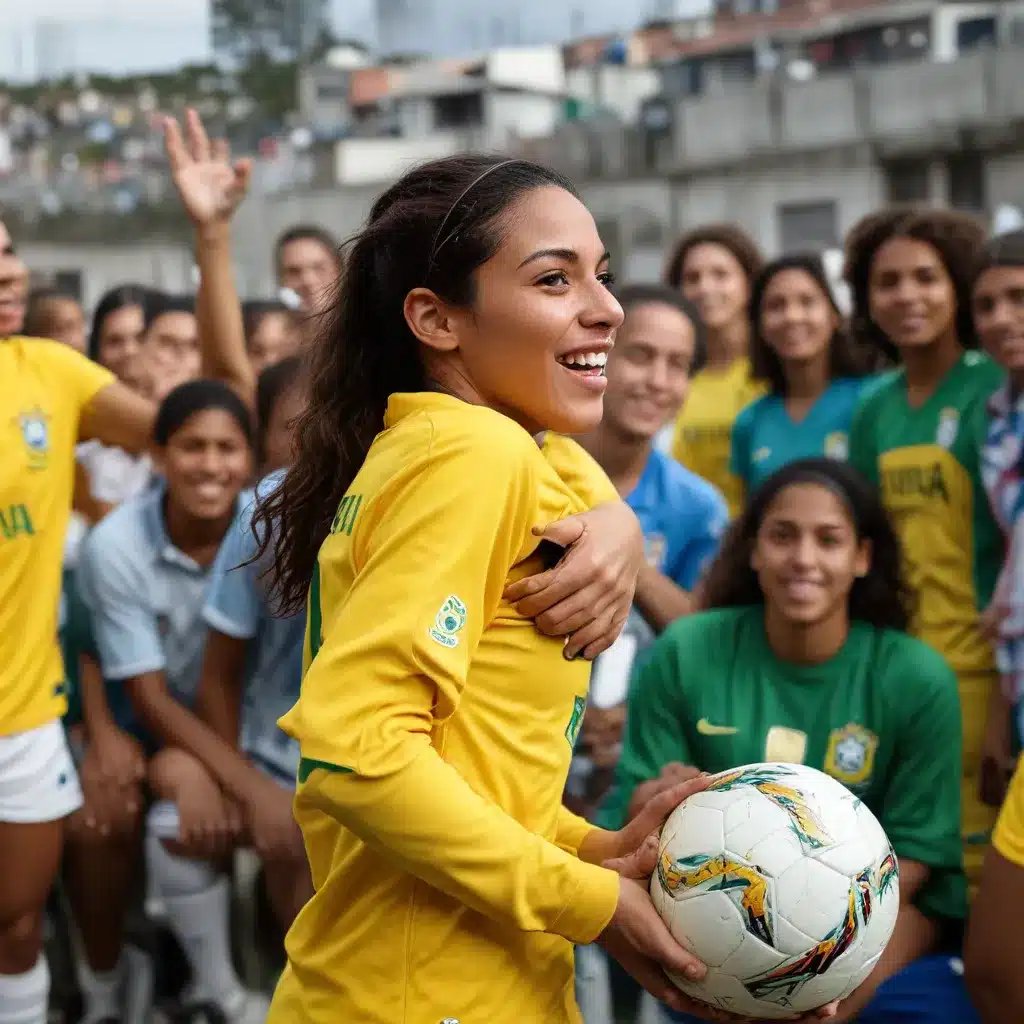
Brazilian Women’s Football
Brazil has long been synonymous with the beautiful game, a nation that has captivated the world with its flair, creativity, and sheer dominance on the men’s football stage. However, the story of Brazilian women’s football is one that has often been overlooked, overshadowed by the fame and success of their male counterparts.
Favela Communities
Yet, nestled within the bustling favelas (informal settlements) of Rio de Janeiro and across Brazil, a quiet revolution has been taking place. Young girls, many from underprivileged backgrounds, are using football as a means of escape, a pathway to a better life. In the Penha favela complex, for example, the Favela Street project has been training ex-drug traffickers to coach football to the youth, offering an alternative to the dangerous lure of the narcotics trade.
“The kids here have a choice,” explains Favela Street founder Philip Veldhuis. “Join the drug traffickers or play football with us.” For girls like Jessica, a 17-year-old football coach, the decision was an easy one. “Stray bullets are part of my life here,” she says. “Sometimes you have to jump into a house to dodge them.” Football has provided a sanctuary, a chance to build a future beyond the violence and despair of the favelas.
Football Development Pathways
The path to success, however, has not been an easy one. For decades, women’s football was banned in Brazil, with a law imposed by the military dictatorship declaring the sport “incompatible with the female form.” Even after the ban was lifted in 1979, the women’s game has struggled to gain the same level of support and attention as the men’s.
Grassroots Initiatives
But through the tireless efforts of grassroots initiatives like Favela Street, a new generation of Brazilian women’s football stars is emerging. Players like Marta, Formiga, and Cristiane have become household names, not just in Brazil, but around the world, inspiring young girls to lace up their boots and take to the pitch.
Influential Superstars
Marta
Marta, widely regarded as one of the greatest female footballers of all time, has been a trailblazer for the sport in Brazil. Born in the small town of Dois Riachos, she honed her skills on the dusty pitches of her childhood, before making her professional debut at the age of 16. Her dazzling dribbling, sublime touch, and eye for goal have earned her numerous accolades, including a record six FIFA World Player of the Year awards.
Formiga
Another icon of Brazilian women’s football is Formiga, a midfield maestro who has represented her country in a remarkable seven World Cups and seven Olympic Games. Her longevity and consistency have been nothing short of remarkable, as she continues to defy the odds and inspire younger generations of players.
Cristiane
Alongside Marta and Formiga, Cristiane has been a stalwart of the Brazilian national team for over a decade. A prolific striker with an unerring eye for goal, Cristiane has been a driving force behind Brazil’s success on the international stage, helping the team to reach new heights and challenge the global powerhouses of the women’s game.
Achieving Global Success
World Cup Performances
Despite the challenges and barriers they have faced, the Brazilian women’s national team has consistently performed at the highest level on the world stage. They have reached the final of the FIFA Women’s World Cup on two occasions, in 2007 and 2019, and have consistently been among the tournament’s top contenders.
Olympic Triumphs
In addition to their World Cup exploits, the Brazilians have also found tremendous success at the Olympic Games. The team has won two silver medals (2004 and 2008) and one bronze medal (2016), showcasing the depth of talent and determination within the squad.
Inspiring the Next Generation
The impact of these Brazilian superstars extends far beyond the pitch. They have become role models for young girls across the country, inspiring them to chase their dreams and break down the barriers that have long been in place. The Favela Street project, for example, is using the power of football to empower young women and provide them with a pathway to a better future.
Challenges and Barriers
Gender Inequality
Despite the undeniable talent and success of the Brazilian women’s national team, the sport has faced significant challenges in gaining the same level of recognition and support as the men’s game. Gender inequality has been a persistent issue, with women’s football often struggling to secure adequate funding, resources, and media coverage.
Lack of Funding
One of the biggest hurdles facing Brazilian women’s football has been the lack of consistent and substantial funding. Without the necessary investment in infrastructure, coaching, and player development, the sport has struggled to reach its full potential. This has led to a widening gap between the men’s and women’s games, with the women’s team often having to make do with limited resources.
Media Representation
Another key challenge has been the lack of media representation for the women’s game. While the exploits of the Brazilian men’s national team are regularly covered by the country’s vast media landscape, the women’s team has often been relegated to the sidelines, receiving far less attention and coverage. This lack of visibility has made it harder for the sport to gain mainstream popularity and attract new fans.
Despite these challenges, the resilience and determination of Brazilian women’s football players have shone through. From the favelas of Rio to the global stage, these athletes have proven that they possess the skill, passion, and drive to compete with the best in the world. As the sport continues to grow and evolve, the future looks bright for the next generation of Brazilian women’s football superstars.

